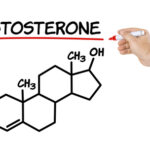How Safe is Testosterone For Women Weight Loss?

Testosterone is a hormone found in humans, as well as in other animals. In men, the testicles primarily make testosterone. Women’s ovaries also make testosterone, though in much smaller amounts. Testosterone is the hormone responsible for the development of male sexual characteristics. Hormones are chemical messengers that trigger necessary changes in the body. Females also produce testosterone, usually in smaller amounts.
The production of testosterone starts to increase significantly during puberty and begins to dip after age 30 or so. Testosterone is most often associated with sex drive and plays a vital role in sperm production. It also affects bone and muscle mass, the way men store fat in the body, and even red blood cell production.
Testoterone and women
Despite being a male sex hormone, testosterone also contributes to sex drive, bone density, and muscle strength in women. However, an excess of testosterone can also cause women to experience some unwanted effects.
Levels of testosterone and other androgens can be measured with a blood test. In women, normal testosterone levels range from 15 to 70 nanograms per deciliter (ng/dL) of blood.
Testosterone levels lower than 15 ng/dL may cause:
• changes in breast tissue
• fertility problems
• low sex drive
• missed or irregular menstrual periods
• osteoporosis
• vaginal dryness
Testosterone levels higher than 70 ng/dL may lead to:
• acne
• blood sugar problems
• excessive hair growth, usually on the face
• infertility
• lack of menstruation
• obesity
• polycystic ovary syndrome (PCOS)
How Safe is Testosterone For Women Weight Loss?
Studies have shown that testosterone therapy is very useful on the management of obesity especially in men with testosterone deficiency, as it produces sustained weight loss without recidivism.
When combined with moderate exercise, testosterone therapy produces significant weight loss in men with lower-than-normal levels. In women, a decrease in testosterone levels in women can lead to a loss of muscle mass. Muscle mass burns more calories than fat and keeps the metabolism working well, so a decrease in muscle tissue could lead to additional weight gain. Increasing testosterone levels and lowering estrogen levels can therefore help to reverse this loss of muscle.
Correcting the amount of testosterone in your body helps you maintain lean mass as you shed body fat. As your levels normalize, your metabolism will increase so that you burn more calories, and your fat distribution will improve.
Research shows that the hormone testosterone may improve sexual function in specific groups of women, but data on safety and effectiveness are limited. The long-term safety of testosterone therapy for women also is unknown. Given the limited research on effectiveness and safety and the number of potential serious side effects, testosterone isn’t a common treatment for weight loss in women. Testosterone preparations are not approved by the Food and Drug Administration for use in women. So if testosterone is prescribed, it’s for off-label use.
Here’s the FDA warning for heart attacks and strokes due to Testosterone use. It is only suggested for use in true, rare, medical emergencies or genetic flaws.





